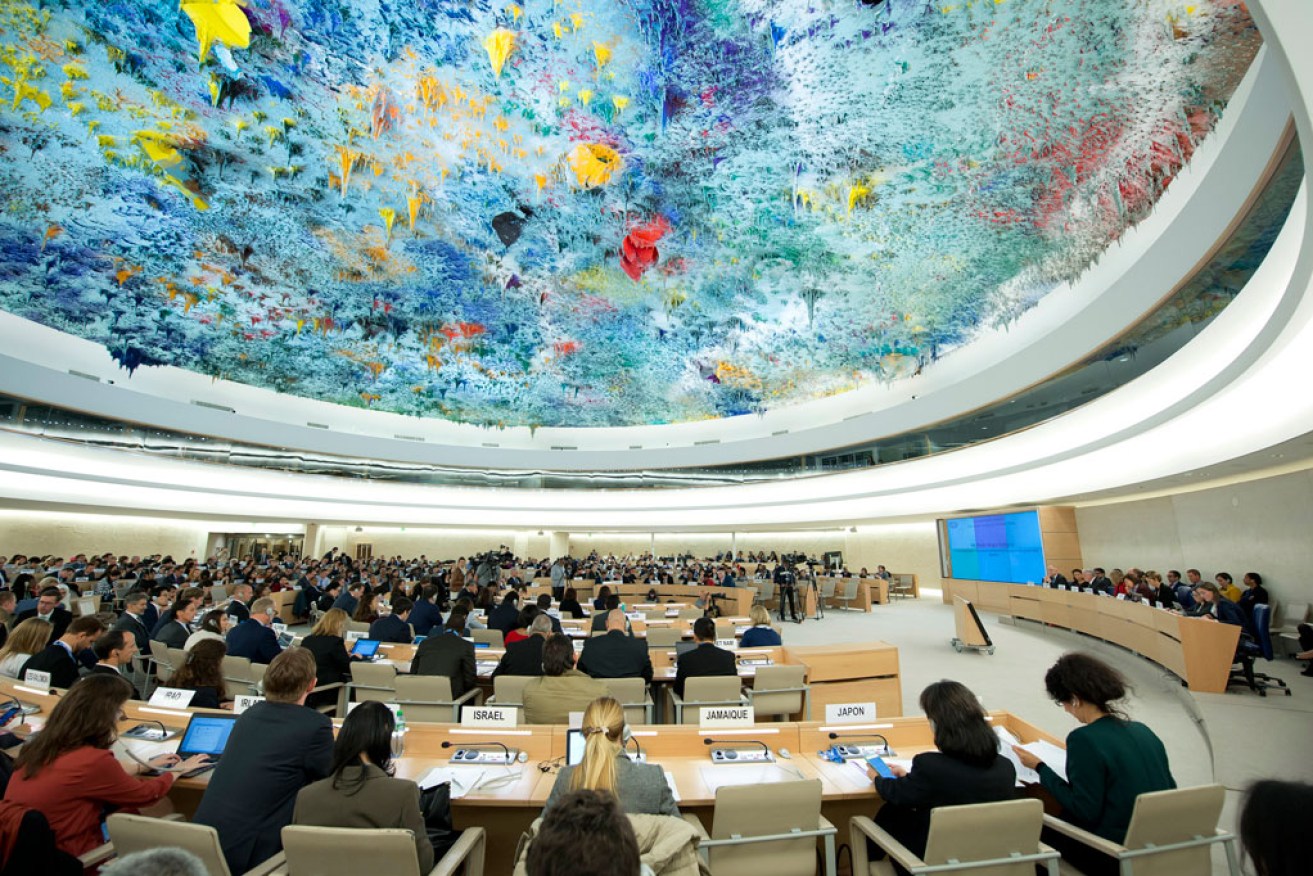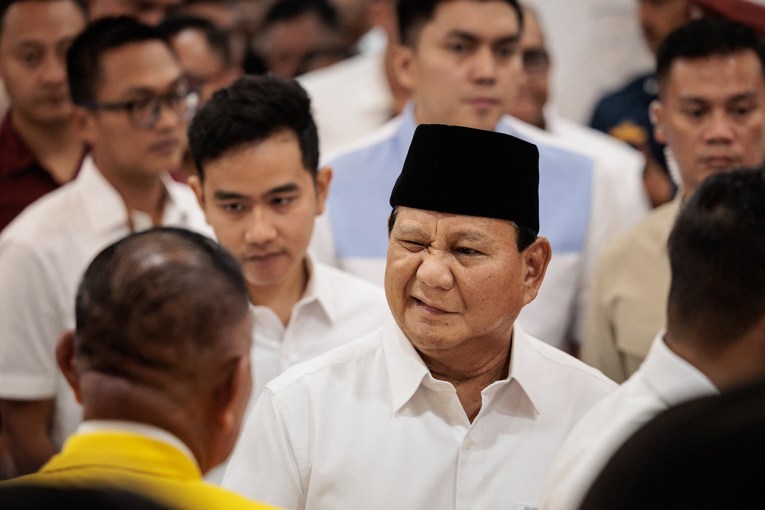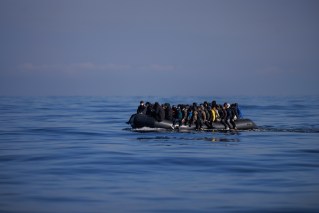UN says Trump’s travel ban could lead to torture

The UN Human Rights Council has send a blunt message to President Trump. Photo: UN/Jean-Marc Ferre
UN human rights experts say US President Donald Trump’s travel ban on nationals from seven Muslim-majority states contravenes international law and could lead to people denied asylum being sent home to face torture.
Mr Trump’s executive order curbing immigration has aroused an international outcry, even among US allies, and sown chaos and bewilderment among travellers.
Legal challenges have spread with three US states suing to overturn the order, saying it flouts constitutional guarantees of religious freedom.
In a statement, the UN experts urged the Trump administration to protect people fleeing war and persecution and uphold the principle of non-discrimination based on race, nationality and religion.
Refugees fleeing conflict & persecution are entitled to protection – message from @AntonioGuterres https://t.co/qnds5h3Tbm pic.twitter.com/rHvnrZul5f
— United Nations (@UN) January 31, 2017
The United States should not force back refugees, a practice known as refoulement, they said.
“Such an order is clearly discriminatory based on one’s nationality and leads to increased stigmatisation of Muslim communities,” said the experts.
“Recent US policy on immigration also risks people being returned, without proper individual assessments and asylum procedures, to places in which they risk being subjected to torture and other cruel, inhuman or degrading treatment, in direct contravention of international humanitarian and human rights laws which uphold the principle of non-refoulement.”
The independent experts included the UN special rapporteurs on migrants, Francois Crepeau; on racism, Mutuma Ruteere; on human rights and counter-terrorism, Ben Emmerson; on torture, Nils Melzer; and on freedom of religion, Ahmed Shaheed.
UN High Commissioner for Human Rights Zeid Ra’ad al-Hussein said on Monday that discriminating against people on the basis of their nationality is illegal.
The UN experts voiced concern that people travelling to the United States could be subject to detention for indefinite periods and ultimately deported.
They called on Washington to live up to internationally agreed obligations to offer refuge to those fleeing persecution and conflicts.
UN human rights chief denounces Trump ban as mean-spirited & waste of resources needed for proper counter-terrorism. https://t.co/AaADE6ycAe pic.twitter.com/woxwKcSM4E
— Balkees Jarrah (@balkeesjarrah) January 30, 2017
Mr Melzer also urged Mr Trump not to consider returning to waterboarding and other methods of torture as interrogation techniques used during George W. Bush’s administration but banned by his Democratic successor Barack Obama.
Mr Trump has said he believes waterboarding works but his top defence and security appointees have said they would oppose any use of it.
Vatican worried about travel ban
Meanwhile the Vatican says it’s worried about US moves on immigration, in the Holy See’s first comment since the executive order came into force.
“Certainly there is worry because we are messengers of another culture, that of openness,” the Vatican’s deputy secretary of state, Archbishop Angelo Becciu, told an Italian Catholic television station on Wednesday.
Archbishop Becciu, who ranks third in the Vatican hierarchy, was asked about the executive order as well as Trump’s promise to build a wall on the US border with Mexico.
“Pope Francis, in fact, insists on the ability to integrate those who arrive in our societies and cultures,” he told TV2000.
https://twitter.com/PedroPepemundo/status/826799373019328512
Some Roman Catholic leaders in the United States have criticised Trump’s executive order.
Cardinal Blase Cupich of Chicago said on Sunday it was “a dark moment in US history” and that it was “contrary to both Catholic and American values”
Last February, while returning from a trip to Mexico, Pope Francis said then-candidate Trump’s view about building walls was “not Christian”.
Germany working hard to restore strained ties
And mending its deteriorated relationship with the US is at the top of the agenda for Germany.
Mr Trump has launched withering attacks on Berlin’s policies after Germany opened its doors to migrants.
Chancellor Angela Merkel had a strong relationship with former President Barack Obama but ties have strained since.
This week, Mr Trump’s top trade adviser said Germany was using a “grossly undervalued” euro to gain advantage over the United States and its European partners.
Front page news in #Germany – a poster from London's anti-Trump demo pic.twitter.com/XkfzGHOS3B
— David Charter (@DavidCharter) February 1, 2017
“The German-American relationship is not just a relationship between governments,” Merkel’s spokesman, Steffen Seibert, told reporters when asked whether “daily attacks from Washington” meant relations had deteriorated.
“It is a deep, I would say historical, friendship between two peoples. It is a union between two democracies. So it is a lot more than two governments – and it is a trans-Atlantic relationship,” he said.
Mr Trump has accepted an invitation to come to a G20 summit that Merkel will host in Hamburg in early July.
CNN being frozen out by White House
Also on the outer – news behemoth CNN, which appears to be suffering from the wrath of the President.
Politico says the White House has refused to send its spokespeople or surrogates onto CNN shows, effectively blocking the network from on–air administration voices.
“We’re sending surrogates to places where we think it makes sense to promote our agenda,” a White House official told Politico, acknowledging that CNN is not such a place, but adding that the ban is not permanent.
White House won’t have officials appear on CNN, which has gone out of its way past year to include pro-Trump voices https://t.co/uzXtz0EwxP
— Michael Calderone (@mlcalderone) February 1, 2017
A CNN reporter was more blunt: The White House is trying to punish the network and force down its ratings.
“They’re trying to cull CNN from the herd,” the reporter said.
White House Press Secretary Sean Spicer pointed out he still answers CNN’s questions in daily briefings, but: “I’m not going to sit around and engage with people who have no desire to actually get something right,” he said.
– with agencies








